Navigating Foreclosure in Rhode Island
Facing foreclosure in Rhode Island can be overwhelming, but homeowners have several options to explore before losing their property. As of June 2025, Rhode Island has one in every 5,839 housing units facing foreclosure, with 83 filings statewide.[1] While this is lower than many states, foreclosure activity has increased 7% year-over-year nationally in the first half of 2025, with Rhode Island seeing a similar uptick amid stabilizing home prices.[2]
While the average foreclosure process in the U.S. takes approximately 645 days, Rhode Island’s most common non-judicial process is significantly faster, typically lasting around 149 days. This emphasizes the importance of acting quickly.[3]
At We Pay More Properties, we help RI homeowners avoid the stress of foreclosure through fair cash offers and our Remodel for Resale program. In this guide, we’ll outline key options tailored to Rhode Island’s laws and market, including mediation requirements and state resources.
Understand the Foreclosure Process in Rhode Island
Foreclosure in Rhode Island is primarily nonjudicial, meaning it doesn’t always go through court, but lenders must follow strict steps.[4] Federal law requires a 120-day waiting period after delinquency before starting foreclosure, giving time for loss mitigation.[5] Lenders must send a mediation notice for owner-occupied homes, and a conference must occur within 60 days.[6]
If unresolved, a notice of sale is published for three weeks, with the auction following at least 21 days later.[7] No statutory right to reinstate or redeem exists in nonjudicial cases, though contracts may allow it.[8] Contact a HUD-approved counselor or RI Housing for free guidance early on.[9]
Option 1: Loan Modification or Forbearance
Work with your lender to adjust your loan terms, such as lowering the interest rate or extending the repayment period.[10] In Rhode Island, RI Housing offers foreclosure prevention counseling and can connect you to programs like the Hardest Hit Fund Rhode Island (HHFRI), which has helped stabilize homes through modifications and assistance.[11]
Forbearance pauses payments temporarily, often followed by a repayment plan. Apply early—lenders prefer avoiding foreclosure, and federal programs support this for COVID-19 hardships.
Option 2: Reinstatement or Repayment Plan
If you can catch up on missed payments in a lump sum (reinstatement), do so before the sale date—Rhode Island allows this up to the auction in many cases.[12] Alternatively, negotiate a repayment plan to spread arrears over time.[13] With RI’s mediation law, use the required conference to discuss these—failure to mediate can void the foreclosure.[14] Resources like Rhode Island Legal Services can assist low-income homeowners.
Option 3: Short Sale or Deed in Lieu
A short sale lets you sell for less than owed, with lender approval forgiving the difference.[15] Deed in lieu transfers the deed to the lender, avoiding foreclosure but impacting credit.[16] In RI, these options are common, especially with rising inventory (up approximately 17% year-over-year) making sales easier. Consult RI Housing for mediation support.
Option 4: Bankruptcy Filing
Chapter 13 bankruptcy stops foreclosure via an automatic stay, allowing a 3-5 year plan to catch up on payments.[17] Chapter 7 might delay but not always prevent it. In Rhode Island, this is effective for those with steady income, but seek legal advice—filings can extend the already long process (average 671 days nationally).
Option 5: Sell Your Home Quickly
If other options fail, sell fast to avoid auction. With RI home prices up 10% to $506,600 median, cash buyers like We Pay More Properties offer a lifeline.[18] We provide no-obligation cash offers within 24 hours, closing in 7-70 days, covering costs and buying as-is. Our Remodel for Resale program handles fixes for higher equity without upfront costs—perfect for distressed properties in Providence or Warwick.
Navigating foreclosure in Rhode Island requires prompt action, given the state’s mediation mandates and moderate but rising rates.[19] Explore HUD counseling, RI Housing programs, or legal aid first.[20] At We Pay More Properties, we’ve assisted over 100 RI homeowners in avoiding foreclosure’s pitfalls. Contact us today for a free cash offer and regain control—no fees, no stress.


